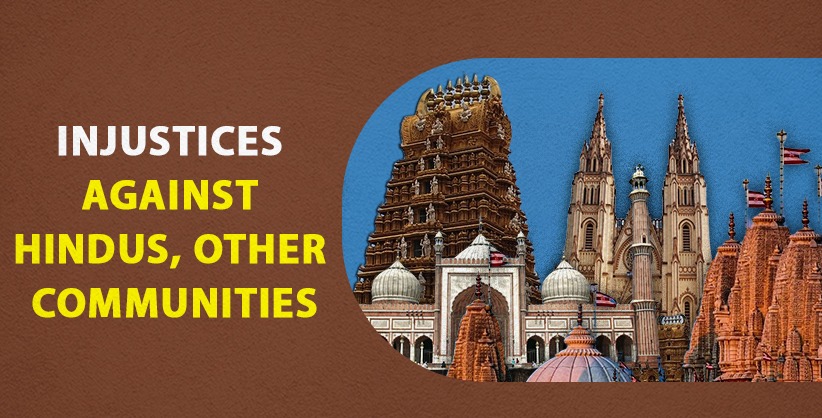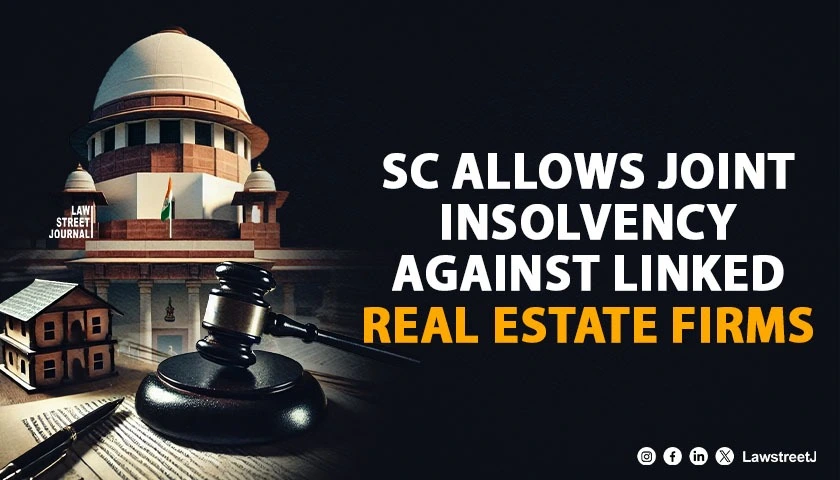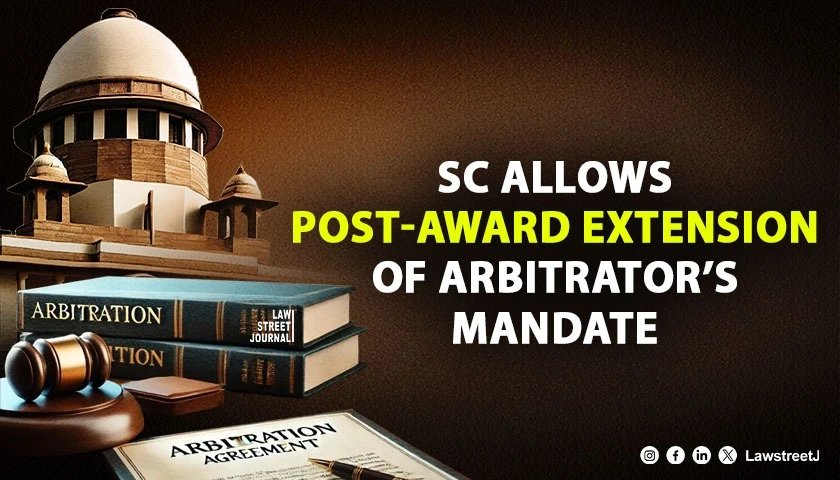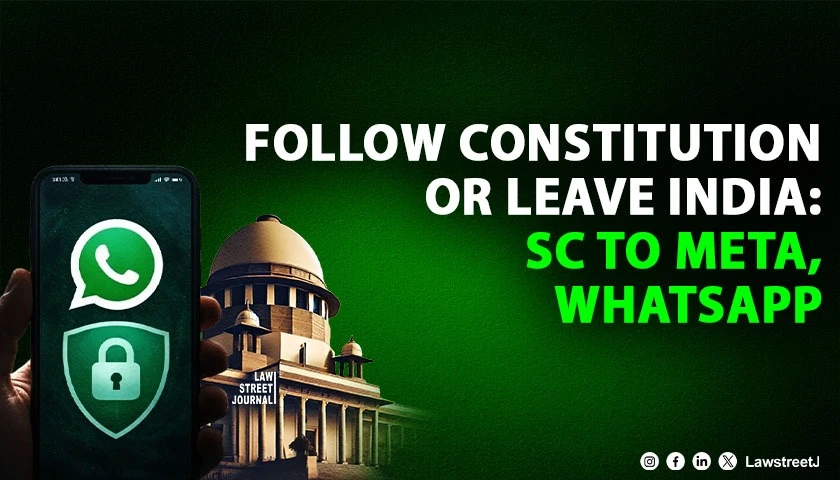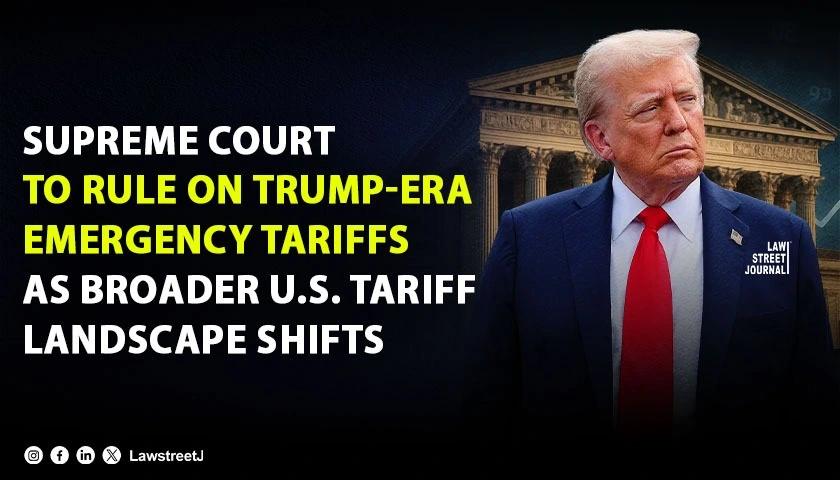NEW DELHI: The Supreme Court, which gave the Union government time till October 31 to clarify its stand on Places of Worship (Special Provisions) Act, 1991, have taken into record legal issues to be determined in adjudicating upon the validity of the law, that apparently justified injustices meted out against Hindu and other communities by barbaric invaders.
The Act has mandated maintaining character of religious places as prevailed on August 15, 1947 despite apparently visible signs of desecration and available records of destruction by invaders of shrines of other faiths.
A bench of Chief Justice U U Lalit and Justices Ajay Rastogi and S Ravindra Bhat noted the questions framed by senior advocates Rakesh Dwivedi and Aman Sinha on behalf of petitioners led by advocate Ashwini Kumar Upadhyay.
The court allowed Muslim sides represented by NGOs Jamiat Ulama-I-Hind and All India Muslim Personal Law Board also to frame their questions for determination.
Let's see the questions framed by Dwivedi:
1.Whether the parliament was legislatively competent to enact the 1991 Act, in as much as in pith and substance, the Act deals with subject matters mentioned in the State List (List-2) of 7th Schedule of the Constitution, namely, Public Order (Entry-1, List-2), Pilgrimage Entry-7, List-2), Land (Entry-18, List-2), Religious Societies, (Entry-32, List-2), Offences with respect to matters in List-2, Entry-64 List-2, Jurisdiction and Powers of Court (Entry-65, List-2) which are all in the Exclusive domain of the State Legislatures?
2.Whether the Act is violative of Article 14 in as much as it discriminates in a hostile manner by restricting the operation of the Act to all States other than the State of J&K and thereby allowing the litigations relating to the places of worship to be continued and instituted in the State of J&K, while imposing a bar on the same with respect to all other States without any rational justification or nexus to the object of communal harmony and peace?
3.Whether the bar of conversation of places of worship imposed by Section-3 read with Section 2(b) is violative of Articles 14, 21, 25, 26 and 29(1) of the Constitution in as much as it assumes, contrary to settled law relating to dedication of temple and temple property to the Idol, which never dies, that seeking reclamation or restoration of the temples destroyed by Muslim invaders, specially by Aurangzeb, would amount to seeking conversion of the place of worship and thereby putting an imprimatur on the destruction of the Hindu temples and the building of structures on the temple land for offering prayers by another community? Whether this would amount to depriving the temples and the Idols of their property without any public purpose and would violate Article-300A of the Constitution?
4.Whether the Cut-off date 15.08.1947 fixed by Section 4(1) of the Act is discriminatory and manifestly arbitrary and violative of Article 14, 21, 25, 26, 29(1) of the Constitution of India as for approximately four centuries prior to the said date the people of India were not free and subjects of initially the Mughal invaders and thereafter of British imperialists and were not in a position to seek retrieval and reconstruction and when independence was achieved by India on 15-08-
1947 the said date has been chosen to silence the Hindus and prevent them from retrieving the rebuilding their prime temples and to undo the deprecatory destruction of those temples.
5. Whether the second part of section 4(2) which bars suits, appeals and other legal proceedings with respect to reclamation of place of worship is violative of Article 14, 21, 25, 26, 29(2) in as much as it denies access to the Court of Justice for peaceful resolution of disputes and redressal of wrongs committed by Muslim invaders on religious grounds by use of force? Can such an absolute bar be created without creating any alternate forum for settlement of such disputes for in its absence the Basic Feature of Rule of Law and Judicial Review would stand destroyed.
6.Whether Section 4(2) of the Act is violative of Articles 14, 21, 25, 26 and 29 (2) of the Constitution in as much as it mandates the abatement of pending disputes in relation to place of worships in the Courts and thereby legislatively perpetuates the destructions of prime temples and the building of structures on the temple land by use of temple materials by the Muslim invaders by use of force resulting in adversely impacting the fundamental rights of Hindus to religion and worship?
7.Whether the second part of Section 4 sub-section 2 would envelop proceedings under Article 226 and Article 32, which is a fundamental right under the Constitution, for it is a settled law that legislatures have no power to shut out the operation of the said provisions embodying powers of judicial review. [(1997) 3 SCC 261, L Chandra Kumar; (2007) 2 SCC 1 I R Coelho].
8.Whether the proviso to Section 4(2) which allows suits, appeals and legal proceedings to continue whether conversion has taken place in the religious character of place of worship after 15.8.47 despite its potentiality to disturb public order, and breach communal harmony whilst shutting out litigations relating to conversions which took place in the past as a result of invaders atrocities amounts to hostile discrimination as between two classes of litigation, and this has no relation to public order and communal harmony? Whether Section-5 of the Act makes invidious discriminations by treating Ram Janam Bhumi dispute as a Class by itself while excluding from the exemption prime temples like Kashi Vishwanath (One of the 12 Jyotirlingas) and Krishna Janm Sthan which are equally, if not more, important temples whose destruction by invaders is more soundly evidenced and recorded in history and therefore violates Articles 14, 21, 25, 26 and 29(1)?
9.Whether the abatement of pending suits and other legal proceedings would result in a decision of cases by legislative fiat and without following any procedure of adjudication and would be contrary to basic feature of Rule of Law and Judicial Review as held in Indira Gandhi vs. Raj Narain [(1975) Supp SCC 1]?Whether the right to worship, profess, practice and propagate religion and manage religious affairs guaranteed by Articles 25(1) and 26 of the Constitution and the right to conserve ones own culture guaranteed by Articles 25(1) would include the right to reclaim and reconstruct temples (which are a continuity) destroyed by Muslim invaders and that could be trampled upon legislatively in the name of public order and communal harmony? Whether such perpetuation and continuance of desecration would actually result in resort to violence and communal disharmony by the blocking of access to Courts for peaceful resolution?
10.Whether suits seeking restoration and reconstruction of or for worship in the temples destroyed and demolished by the Mughal invaders would amount to conversion within the meaning of the term as defined in the Act? Whether the aforesaid issues can be said to be already decided or covered by the judgment of this Court in M Siddiq (D) Thr. Lrs. vs. Mahant Suresh Das and Ors (Ayodhya judgement), CA Nos. 10866-10867 OR are they Res Integra?
11.Whether doctrine of non-retrogression has been correctly applied in Siddique [(2020) 1 SCC 1] and whether this doctrine enunciated and applied by US SC [SCOTUS] is at all applicable under our Constitution.
The additional questions framed by Sinha, are: -
1.Destruction of temples was a historical injustice on generations of Hindus perpetrated by then ruling elite such as Aurangzeb and Places of Worship Act, 1991 even forecloses the possibility of remedying this injustice which is contrary to our constitutional scheme which recognises the need to remedy this generation injustice.
Affirmative action to historically disadvantaged is a basic thread which runs through the constitution and is evident in affirmative action to historically oppressed and disadvantaged groups such as SC/ST/Women as reflected in Articles 15,16, 17 & Article 243 of the Constitution of India. However, the 1991 Act runs absolutely contrary to this concept of intergenerational Justice and instead of providing intergeneration justice it perpetrates intergenerational injustice among Hindus. Considering the huge number of hindu temples whichwere barbarically demolished this issue is connected to the collective identity of Hindus and their fundamental right to assert their religious identity as guaranteed under Article 25 of the Constitution and 1991 Act is an affront to this collective identity of Hindus.
2. The 1991 Act is a completely colourable piece of legislation garbed as a secular enactment but directed towards Hindus. There is little or no example to my knowledge where an original Muslim place of worship is demolished by Hindus prior to 15th August, 1947 or even thereafter, therefore this is a totally colorable piece of legislation which runs contrary to basic structure of the Constitution.
The top court has put the matter for consideration on November 14.
Read Order

